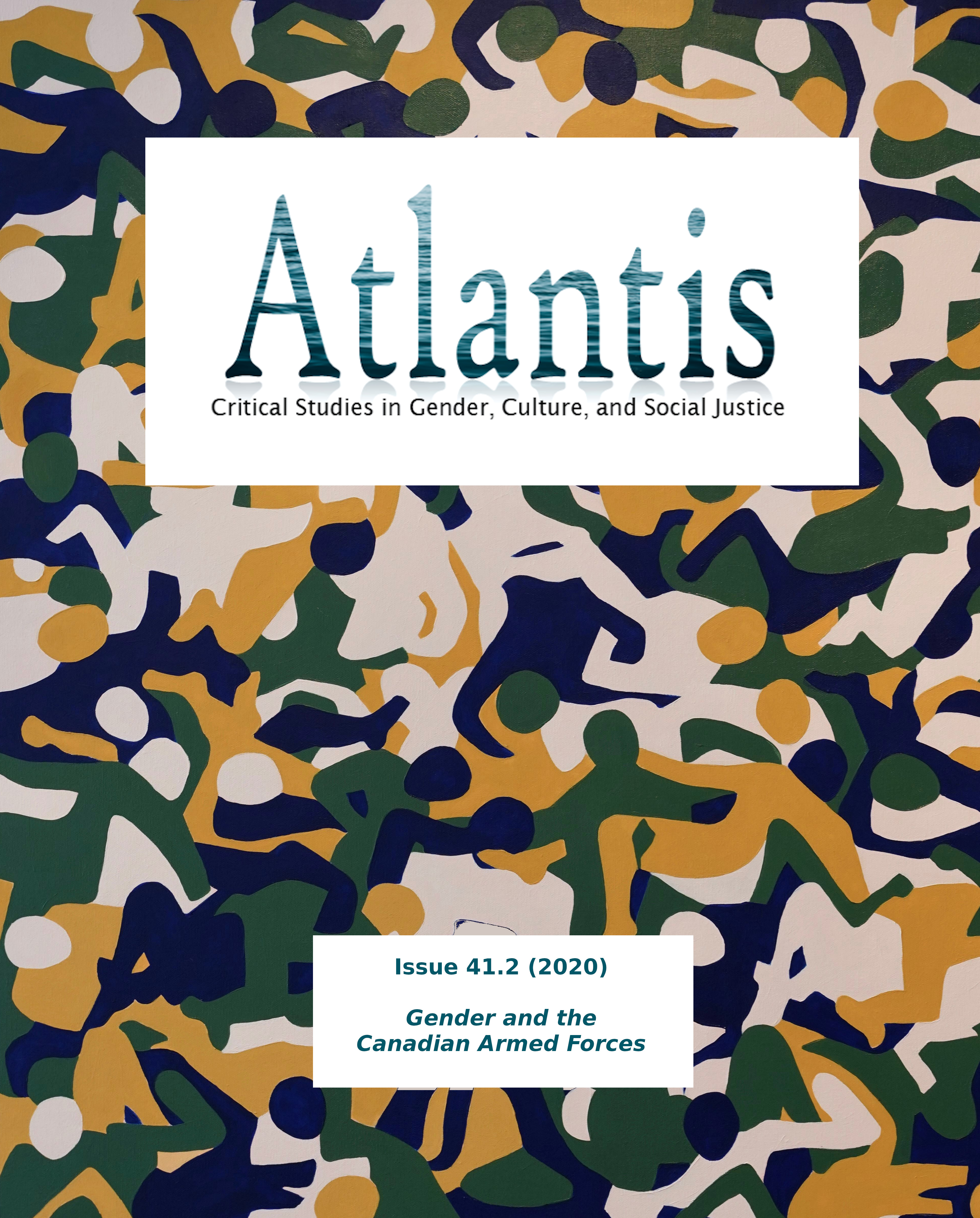Regendering the Canadian Armed Forces
Keywords:
Canadian Armed Forces, feminist, gender, militaryAbstract
Although feminist scholars agree that there exists a systemic relationship between masculinity and militarism, the exact contours of that relationship are debatable. Most feminists argue that as a primary goal, the women’s movement ought to seek approaches for the abolition of militarism, rather than using women’s participation in the military as a means of enhancing gender equality. Despite admonitions about the dangers of pursuing gender equality through military service, feminists must also weigh these concerns against women’s advances within the military and the use of the military in peacekeeping and humanitarian operations, both of which are essential to the Women, Peace and Security agenda. This article therefore turns a critical feminist lens on theories of military re-gendering. I explore whether military organizations that have traditionally valorized militarized masculinity can be transformed—both at an individual and systemic level—to embrace an egalitarian iteration of masculinity and contribute to a more peaceable international system. To examine the possibility of regendering in the Canadian Armed Forces (CAF), I review 17 interviews that I conducted with members of the CAF from 2017-2018 using theories of military regendering. My analysis indicates that servicemembers are engaging in critical examination of the military’s gender culture, and their position within that culture. By critically engaging with questions about the relationship between gender and militarism, military personnel may be participating in the incremental—and fragile—process of improving the gender culture of the CAF.
References
Downloads
Published
Issue
Section
License
Copyright (c) 2020 Victoria Tait

This work is licensed under a Creative Commons Attribution 4.0 International License.
Authors who publish with this journal agree to the following terms:
1. Authors retain copyright and grant the journal right of first publication, with the work simultaneously licensed under a Creative Commons Attribution 4.0 International License that allows others to share the work with an acknowledgement of the work's authorship and initial publication in this journal.
2. Authors are aware that articles published in Atlantis are indexed and made available through various scholarly and professional search tools, including but not limited to Erudit.
3. Authors are able to enter into separate, additional contractual arrangements for the non-exclusive distribution of the journal's published version of the work (e.g., post it to an institutional repository or publish it in a book), with an acknowledgement of its initial publication in this journal.
4. Authors are permitted and encouraged to preprint their work, that is, post their work online (e.g., in institutional repositories or on their website) prior to and during the submission process. This can lead to productive exchanges, as well as earlier and greater citation of published work. Read more on preprints here.







